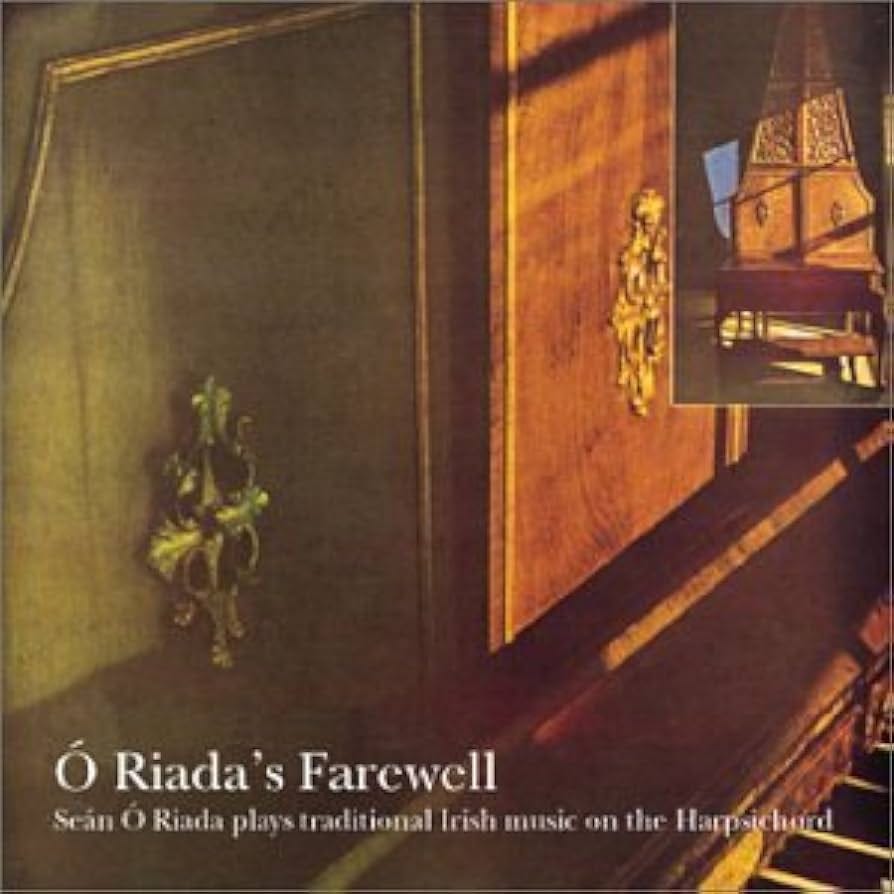O’Riada’s Farewell
Claddagh Records CC 12 (LP, 1972)
This album was recorded in the summer of 1971 at Luggala Lodge, an 18th century house on a county Wicklow estate owned by Garech Browne. Browne was a member of the Guinness brewing dynasty though he took no part in the business. Instead, he devoted himself to the arts, co-founding Claddagh Records in 1959 to help preserve Irish traditional music. He was a wide-ranging patron and friend of poets and artists including Francis Bacon, Lucien Freud, Samuel Beckett, Seamus Heaney, John Montague, Brian Jones and Mick Jagger. The influence of those visits can be found throughout the early songs of the Rolling Stones. Famous for the parties on his estate there was a lonelier, melancholy side to the man as he struggled with alcoholism. The death of his brother, Tara Browne, in a car crash in London in 1967 also left him bereft.
The sessions for O’Riada’s Farewell were overseen by Paddy Moloney of the Chieftains. O’Riada chose to play a rare 1764 upright harpsichord with a keyboard that sounds on the verge of ruin. The recording itself is sharp and unforgiving. The action of the keyboard as the keys are depressed can be just as clearly heard as each note. Consequently, there is an emphasis on the physical effort of the performance. Apparently, the keyboard was in such poor shape that Moloney later had to painstakingly replace every A with one recorded on another instrument.
The mood of the proceedings was strange. Moloney, on his way to lunch in the lodge’s dining room spotted his wife pass the windows outside looking worried.
Years later he recalled the incident with Chieftains’ biographer, John Glatt:
‘I thought it was strange, says Paddy. “I knew she was three miles away in Garech’s cottage and she didn’t drive or walk in those days. I became more and more worried during lunch and afterwards I thought I’d better telephone her. I asked her how she was and she told me that she wasn’t too well. I said I know because I’d seen her go past the window here. She said, “That’s very funny because I was out hanging clothes and I fell and hit my head badly and was unconscious for two minutes.” I felt a chill rush through me because it was exactly the same time that I’d seen her walk by.’
If all of this sounds negative it isn’t. The laboured sound of the keyboard adds a vital dimension to the performance and the circumstances surrounding the recording. It was barely 12 years since Sean O’Riada had created the score for the film Mise Eire and set in train a revolution in traditional music with his group Ceolteori Chulann. Now, physically ravaged by alcoholism, O’Riada made what was he must have known would be his final recording (he died only a few months later). The selection of tunes pays homage to the blind harpist Turlough O’Carolan, 300 years after his birth, and includes many standards that reflect all aspects of the tradition O’Riada reinvigorated through his brief career. Most poignantly, he also plays ‘Mo Ghile Mear’, the tune he wanted for his funeral.
The album is a last great statement from one of the most important figures in Irish music, a conceptual work in its selection of tunes, the knowingness of the circumstance and O’Riada’s particular choice of instrument. Beyond that, however, it’s a sensual delight with great warmth and sentimentality kept perfectly in check.




